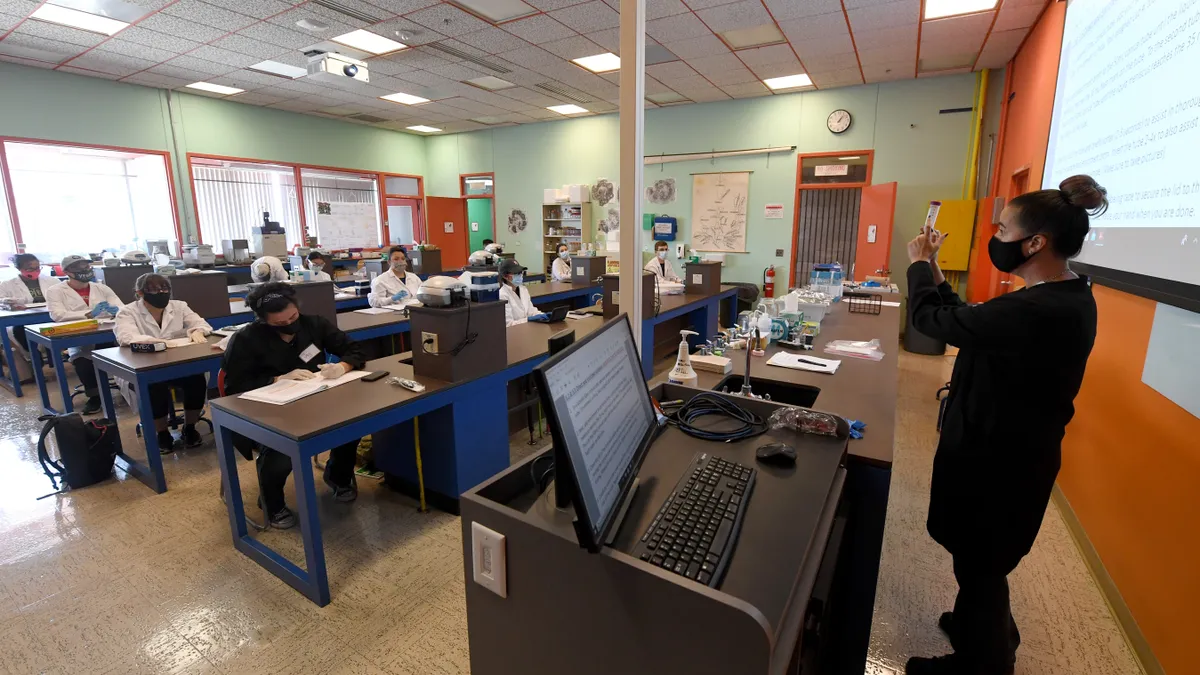Dive Brief:
- Adults across party lines are concerned about the high tuition, student debt and time commitments they associate with getting a college education, according to polling results released in July by Public Agenda, a nonprofit research organization. Two-thirds of respondents said they see colleges as “stuck in the past” and not serving the needs of today’s students.
- Respondents were only moderately supportive of increasing public funding for higher ed generally. But they strongly supported specific state initiatives to expand college access and affordability, and 89% said all high school graduates should have an equal opportunity to get a college education, regardless of race, ethnicity or income.
- Findings suggest that institutions may need to change what they’re offering to the public, while policymakers might have success winning public buy-in by being specific about plans and initiatives, said David Schleifer, vice president and director of research at Public Agenda.
Dive Insight:
While 86% of respondents said they believe that higher education can help working people advance their careers, just 64% said they believe people with only a high school diploma would make a better living if they had a college education. That is despite the fact that the earnings bump from a college degree is well-documented in data, with earnings for a bachelor’s degree holder averaging 84% more than the earnings of a high school graduate, according to research from the Georgetown University Center on Education and the Workforce.
“People have a lot of really conflicted feelings about higher education,” Schleifer said. “People recognize the potential benefits, but they also recognize a lot of ways that higher ed as it currently exists isn’t necessarily working for people. It’s expensive. It takes a long time.”
At the policy level, the survey found more support for specific state initiatives aimed at affordability and job outcomes — such as creating more workforce and training programs, increasing financial aid for low-income college students, and offering interest-free student loans — than it did for general statements about increasing funding to public education.
“People want to know what they’re paying for,” Schleifer said. “Just talking about how we’re going to throw more money at the public higher education system in a general way, I don’t think is as strong a strategy.”
Only 52% of those polled believed that the country's economy would be stronger if more people were educated at college. Respondents were more optimistic when focusing on their specific state, with 71% believing that their state’s capacity to attract employers would be bolstered if more residents had a college education.
Respondents were also more likely to show support for maintaining public funding during difficult economic times when they were reminded that the majority of college students attend public institutions.
“People need that reminder of what higher education is and who it serves,” Schleifer said.
Researchers collected responses from 1,662 people ages 18 and older in early May. Responses were weighted based on gender, age, region, education, and race and ethnicity to make it nationally representative. The Lumina Foundation provided support.













